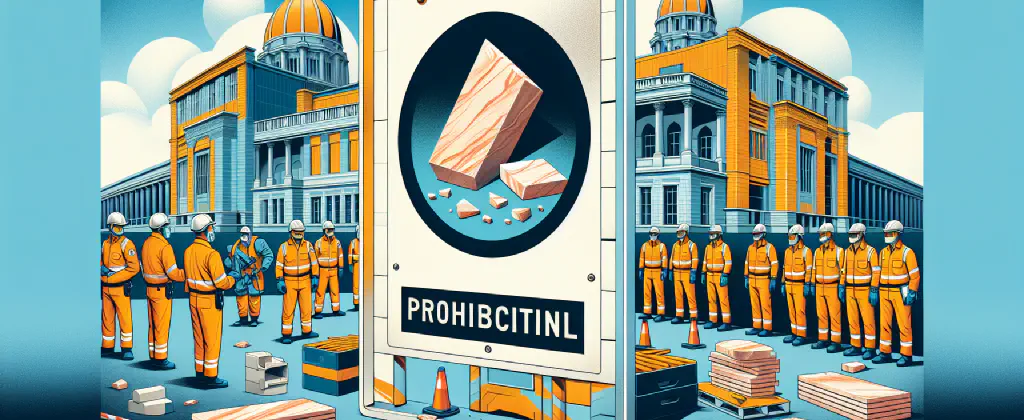13. December 2023
Australia's Ban on Engineered Stone: A Necessary Action to Protect Workers

Australia has recently made the decision to ban the use of engineered stone, citing severe health and safety concerns. The decision, made by SafeWork, is based on the industry’s rampant non-compliance with safety standards, making a complete ban the only viable option. This move has sparked important discussions about the challenges of enforcing safety regulations, the importance of prioritizing worker well-being, and the role of government in protecting its citizens.
The Non-Compliant Culture: “Anti-PPE” Mentality
One of the main reasons behind the ban is the prevalence of a non-compliant culture in the industry. Workers often resist wearing personal protective equipment (PPE), even when it is readily available. This can be attributed to a variety of factors, including a macho mentality, lack of awareness of the risks, discomfort associated with wearing PPE, and the belief that compliancy can be easily avoided. The constant battle to enforce PPE usage is a significant challenge, with some workers finding excuses or simply disregarding safety measures altogether.
The Role of Strong Unions and Safety Regulations
Instances of non-compliance and resistance to safety standards highlight the need for strong unions and well-enforced safety regulations in the construction industry. In some cases, safety standards have only been taken seriously when faced with severe consequences, such as lawsuits and compensation claims. It is clear that a combination of strict regulations, certification processes, and severe fines for non-compliance can be effective in creating a safer work environment.
Overcoming Resistance to PPE: Education and Innovation
Education and awareness play a crucial role in overcoming resistance to PPE usage. By highlighting the potential risks and consequences of not using proper protective measures, workers can better understand the importance of compliance. It is also essential to address common concerns, such as fogged glasses, by providing suitable alternatives and solutions. Moreover, companies should invest in innovative solutions, such as improved PPE designs and technologies, to make safety measures more comfortable and effective for workers.
The Government’s Duty to Protect Workers
Critics argue that banning an industry due to non-compliance is shirking the government’s duty to protect workers. However, the ban on engineered stone is not about targeting small businesses or hindering economic growth. It is a necessary step to prevent severe illnesses and deaths caused by exposure to silica dust. While enforcement and fines can be effective, they may not be enough to ensure compliance, particularly in cases where companies can easily evade consequences by declaring bankruptcy or changing ownership.
Balancing Economic Impact with Worker Safety
The decision to ban engineered stone raises questions about balancing economic impact with worker safety. While it is important to support small businesses and promote economic growth, it should not come at the expense of endangering lives. Finding alternatives to dangerous materials and encouraging safer practices can be a more sustainable solution in the long run. The ban on engineered stone sends a message to both manufacturers and users of chemical products, encouraging them to prioritize safety and find safer alternatives.
Learning from Past Mistakes: Asbestos and CFCs
The ban on engineered stone also draws parallels with past regulations on asbestos and chlorofluorocarbons (CFCs). In the case of asbestos, despite its known health risks for centuries, governments failed to take decisive action for decades, resulting in countless victims. Similarly, the dangers of CFCs were eventually recognized, leading to their ban, despite their usefulness if used properly. These examples highlight the importance of taking proactive measures to protect workers and public health, even if it means making difficult decisions.
Creating a Safer Future for Workers
Australia’s ban on engineered stone serves as a crucial step towards creating a safer future for workers across industries. It underscores the need for stricter safety regulations, compliance enforcement, and innovative approaches to protect workers from occupational hazards. By prioritizing worker well-being and promoting a culture of safety, we can ensure that workers are protected and workplaces are conducive to their health and safety.